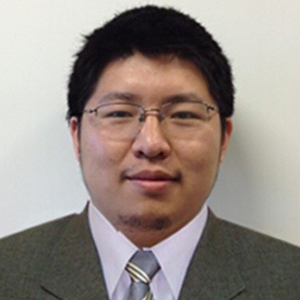‘We’re thankful for our reviewers’
In the realm of scientific publishing, reviewers play a crucial but often underappreciated role. They dedicate their time and expertise to meticulously assess research manuscripts, providing authors with timely, insightful feedback and constructive criticism. Their efforts are crucial in maintaining the high standards of scientific journals as well as helping authors improve the science they present to a broad audience.
While most of peer-review work is done anonymously, the chief editors of the journals published by the American Society for Biochemistry and Molecular Biology want to highlight these dedicated scientists and give them the recognition they deserve.
The Journal of Biological Chemistry, Journal of Lipid Research and Molecular & Cellular Proteomics have always been dedicated to building a strong, engaged community of reviewers and their editors highly value the irreplaceable contributions the reviewers bring to these journals.
Alex Toker, associate director of the Cancer Research Institute at Beth Israel Deaconess Medical Center and professor of pathology at Harvard Medical School, has served as editor-in-chief of JBC since 2021.
“We sincerely thank our peer reviewers and over 600 editorial board members for their invaluable contributions and thoughtful insights, which significantly enhance the quality of the JBC,” Toker said. “The journal’s success is made possible by the expert service that the working scientists on our editorial board provide during manuscript review.”
Kerry-Anne Rye and Nicholas O. Davidson, co-editors-in chief of JLR, also acknowledge the vital contributions of reviewers. Rye, a research professor at the University of New South Wales in Australia, and Davidson, a professor at Washington University in St. Louis, underscored the importance of maintaining high-quality and timely reviews.
“Thanks to our reviewers' hard work, we could aim for the goal of a nine-day turnaround for initial decisions and a 14-day review for full manuscripts,” they noted in a joint statement.
The reviewers named below have consistently demonstrated their commitment to the scholarly community and have significantly contributed to enhancing the quality of published research. While we are recognizing these individuals by name for their outstanding efforts, the editors extend their gratitude to all the reviewers who help ensure that ASBMB journals maintain the highest standards of scientific excellence.
Journal of Biological Chemistry
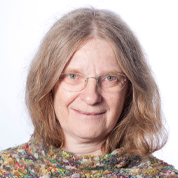
Birte Svensson is a professor at the Technical University of Denmark. Her main research interests are structure/function relationships and applications of multidomain carbohydrate active enzymes acting on starch, alginate and other dietary polysaccharide fibers, proteins and hydrocolloids in food and dairy. Svensson has been a member of the JBC Editorial Board since 2014.

Gaetano Santulli is a physician–scientist at Albert Einstein College of Medicine in New York City. His main interests include metabolism and cardiovascular medicine with a particular emphasis on translational discoveries. Research in his lab spans from non-coding RNAs to intracellular calcium, from mitochondrial dysfunction to oxidative stress, with applications to human health and clinical practice in fields including diabetes, cardiac disorders and aging. He is honored to be a part of a rigorous peer-review process that is both constructive and fair. He has been JBC Editorial Board member since 2019.

Amit R. Reddi is a professor in the School of Chemistry and Biochemistry at the Georgia Institute of Technology in Atlanta. His research interests are focused on understanding transition metal and redox homeostasis and signaling. Reddi has served on the JBC Editorial Board since 2020 and has enjoyed reading and publishing in JBC his entire academic life.

Yuriy M. Usachev is a John P. Long Endowed Professor of Neuroscience and Pharmacology and co-director of the Pain Research Program at the University of Iowa College of Medicine. His laboratory studies molecular and cellular mechanisms of nociception and pain processing. Another focus of his research program is investigation of mitochondrial dynamics and Ca2+ transport in the regulation of neuronal function in health and disease. He has been on the JBC Editorial Board since 2015 and always enjoyed working with an outstanding team of editors who strive to provide rigorous and fair peer-review process at every level.
Journal of Lipid Research

David Ford’s lab investigates the biology of lipid oxidation products with a focus on endothelial and epithelial dysfunction during sepsis and in response to environmental inhalation injury. He is a physiologist who gets excited about new lipid discoveries and understanding the role of new lipid molecules in disease.
Molecular & Cellular Proteomics

Katalin F. Medzihradszky is an expert in the interpretation of tandem mass spectrometry spectra of peptides, including de novo sequencing as well as the characterization of covalently modified molecules, especially O-linked glycopeptides. She has served as an ad hoc reviewer for several journals and is on the editorial board of Biomolecules. In 2015, she retired from the Mass Spectrometry Facility of the University of California, San Francisco, but remains affiliated with the pharmaceutical chemistry department as an adjunct professor. She is also a consultant for the Laboratory of Proteomics Research of the HUN-REN Biological Research Centre in Szeged, Hungary, where she was the group leader until 2021. She has been on the MCP board since 2004.
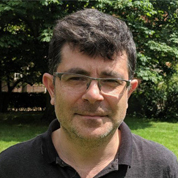
Pedro Cutillas leads the Integrative Cell Signaling and Proteomics Group within the haemato-oncology department at Barts Cancer Institute. He is a fellow of the Turing Institute and has worked in liquid chromatography–tandem mass spectometry proteomics for 20 years. His research group uses unique proteomics and computational approaches to understand how cell signaling pathways driven by the activity of protein kinases contribute to the development of cancer.

Junmin Peng is a professor at St. Jude Children’s Research Hospital, where he develops mass spectrometry–based proteomics, metabolomics and systems biology approaches to tackle biomedical challenges. He has contributed to the establishment of target–decoy strategies for protein and metabolite identification, the discovery of ubiquitin code and the identification of RNA splicing dysfunction and other novel disease-related proteins in Alzheimer’s disease. He has published over 250 scientific papers and trained approximately 100 group members. He has served as an ad hoc reviewer for more than 80 scientific journals and has been on the MCP Editorial Board since 2015.
Enjoy reading ASBMB Today?
Become a member to receive the print edition four times a year and the digital edition monthly.
Learn moreGet the latest from ASBMB Today
Enter your email address, and we’ll send you a weekly email with recent articles, interviews and more.
Latest in People
People highlights or most popular articles

Creating change in biochemistry education
Pamela Mertz will receive the ASBMB William C. Rose Award for Exemplary Contributions to Education at the ASBMB Annual Meeting, March 7-10 in Washington, D.C.
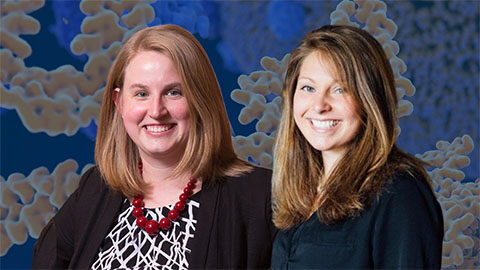
Amacher, Pollock named Henry Dreyfus scholars
They were recognized for their outstanding research scholarship and a deep commitment to undergraduate education and each received $75,000 to fund their research.

Trainee mentorship as immortality
Suzanne Barbour will receive the ASBMB Sustained Leadership Award at the ASBMB Annual Meeting, March 7-10 in Washington, D.C.

Life in four dimensions: When biology outpaces the brain
Nobel laureate Eric Betzig will discuss his research on information transfer in biology from proteins to organisms at the 2026 ASBMB Annual Meeting.
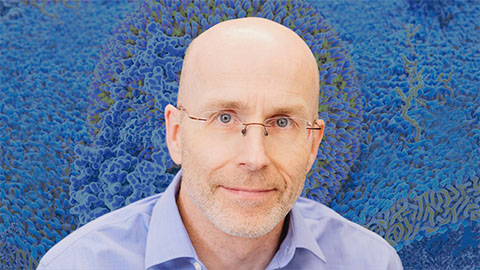
Fasting, fat and the molecular switches that keep us alive
Nutritional biochemist and JLR AE Sander Kersten has spent decades uncovering how the body adapts to fasting. His discoveries on lipid metabolism and gene regulation reveal how our ancient survival mechanisms may hold keys to modern metabolic health.
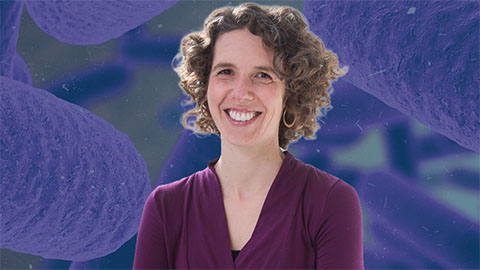
McRose awarded Packard fellowship
She will receive $875,000 in research funding over five years.

